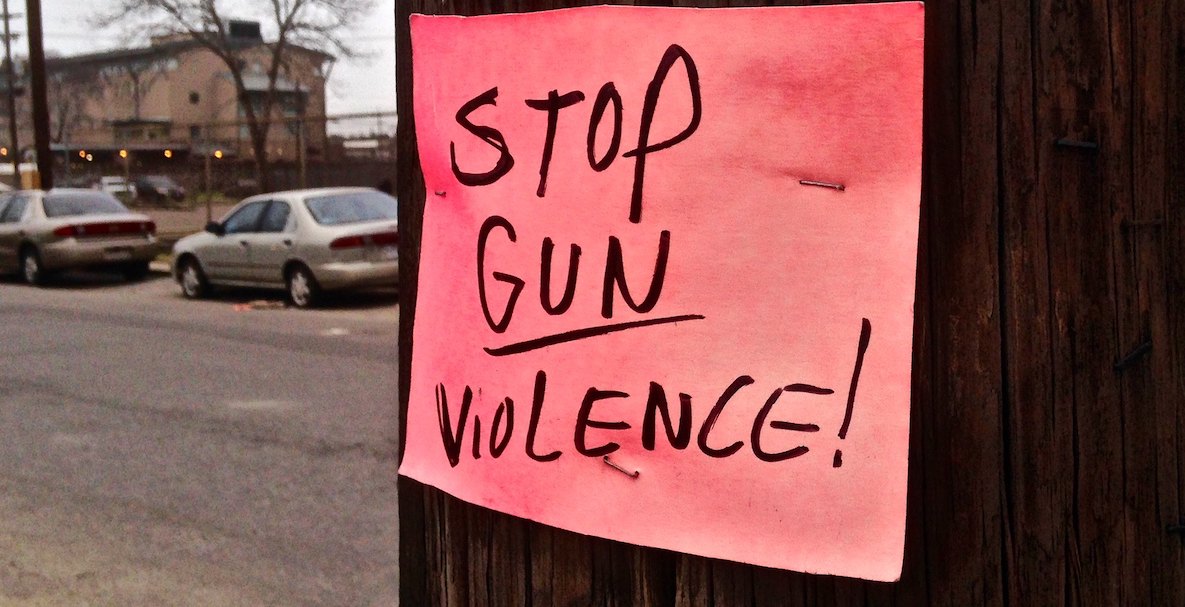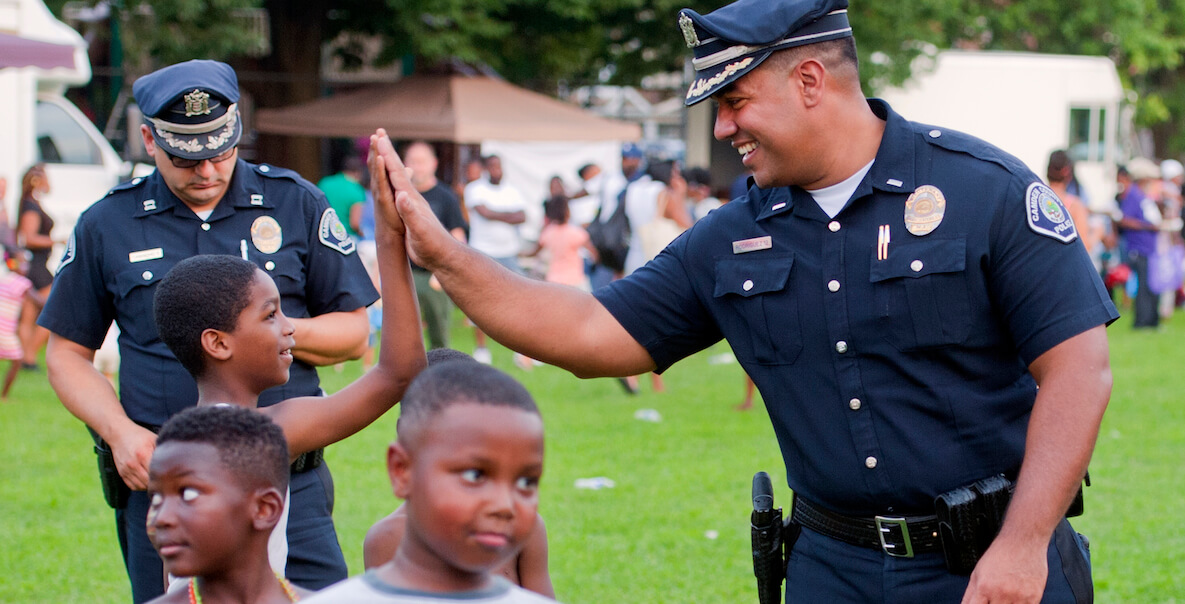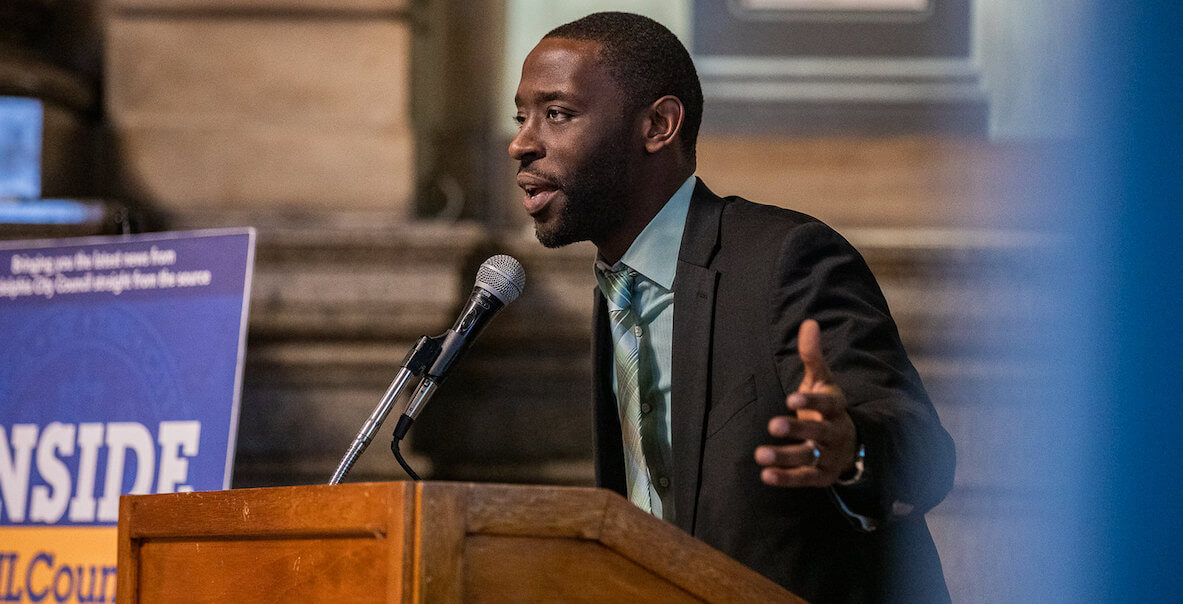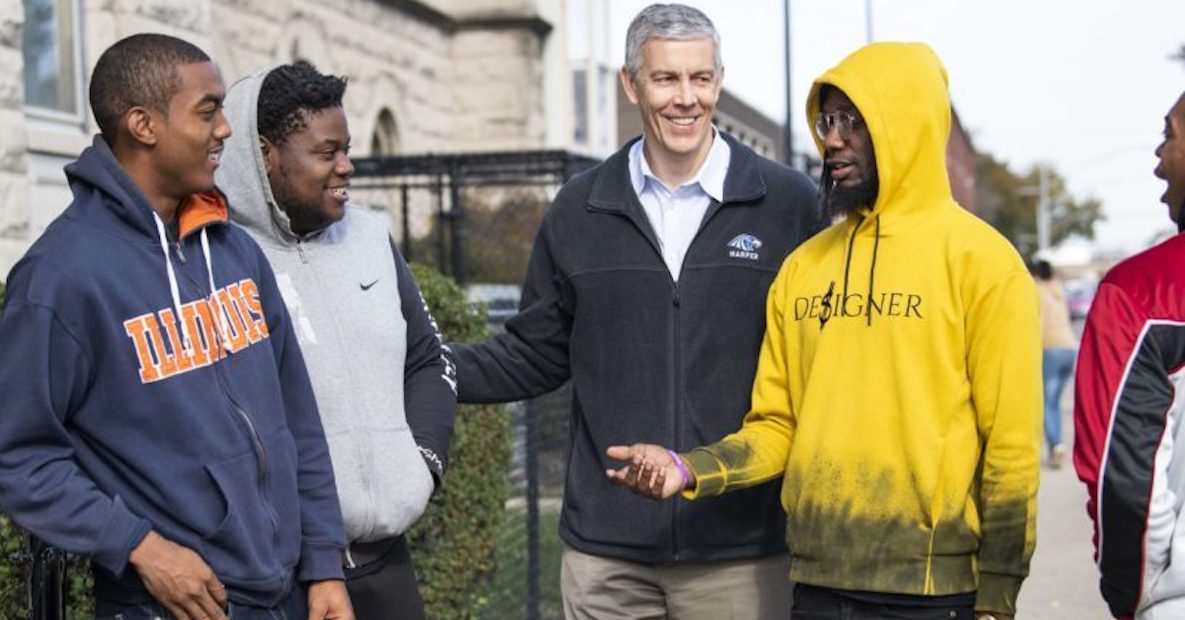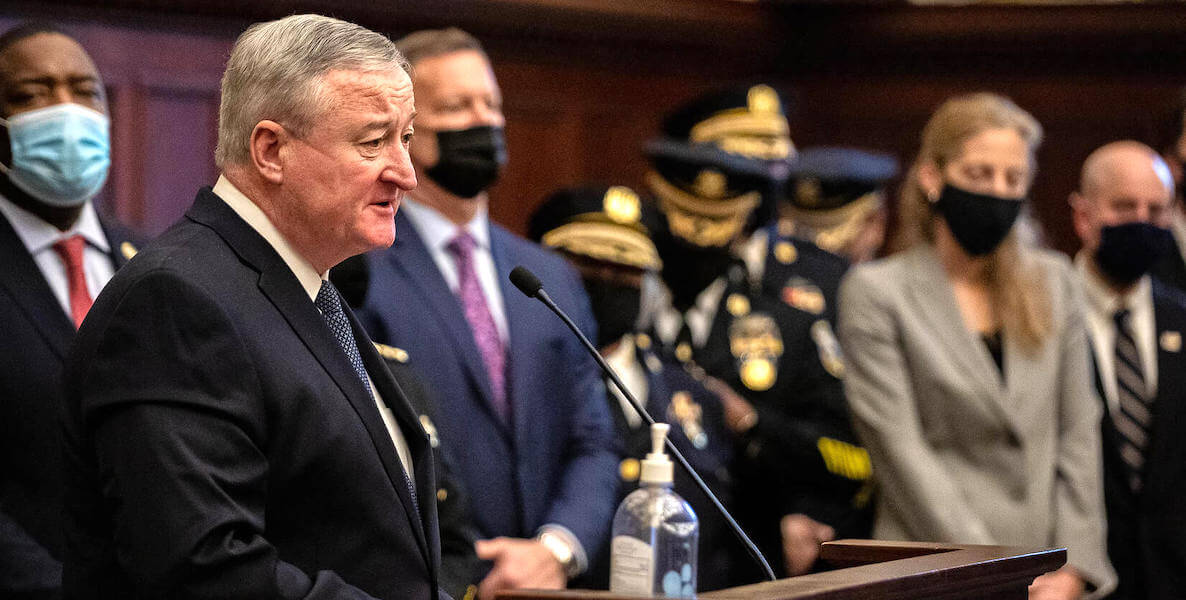Last week started with our incredibly shrinking mayor releasing his annual holiday video message to the citizens of Philadelphia. A stirring call to arms in the middle of a gun violence crisis it was not. Instead, it had all the optics of a hostage video—the dour-faced protagonist, reading cue cards in a lifeless monotone, no doubt counting down the days, hours and minutes until he’s free. Someone arrange a ransom payment to Jim Kenney’s City Hall captors!
Watching, it was tempting to feel deflated. Two more years of Kenney fiddles while Philly burns? Breathe, I told myself. Turns out, inspiration was to be had last week, once I widened the aperture of my lens beyond the see-no-evil—and warring—triumvirate of Kenney, District Attorney Larry Krasner and MIA Police Commissioner Danielle Outlaw.
In fact, last week may turn out to be an inflection point in the war on murder and mayhem in our cities. On Tuesday, two former two-term mayors appeared at our Ideas We Should Steal Festival, and made one of the most full-throated arguments we’ve seen for investing in smart policing while reforming what needs fixing in law enforcement. As if a clarion call, within days two current big city progressive mayors delivered the same “enough is enough” message—a nuanced argument that you can be tough on crime and just at the same time.
“It seems that there’s this notion that we can either reform the police or we can be safe, and I think that’s just bullshit,” former Mayor Michael Nutter said at the Ideas We Should Steal Festival.
“It seems that there’s this notion that we can either reform the police or we can be safe, and I think that’s just bullshit,” former Mayor Michael Nutter said at the Festival. Under Nutter, Philadelphia posted its lowest murder rates in over 60 years, and he went on to paint a picture of how that gets done. “You have to do both. There’s a lot of focus on the numbers, but it’s not just numbers. There are people behind those numbers. Thats a life in this city. That’s a family that’s been damaged. That’s a neighborhood. When someone is shot or killed on a block, it is not just a personal incident. That entire block and community and neighborhood is affected. Those kids are going to have nightmares at night. Just washing down the sidewalk does not take away the trauma.”
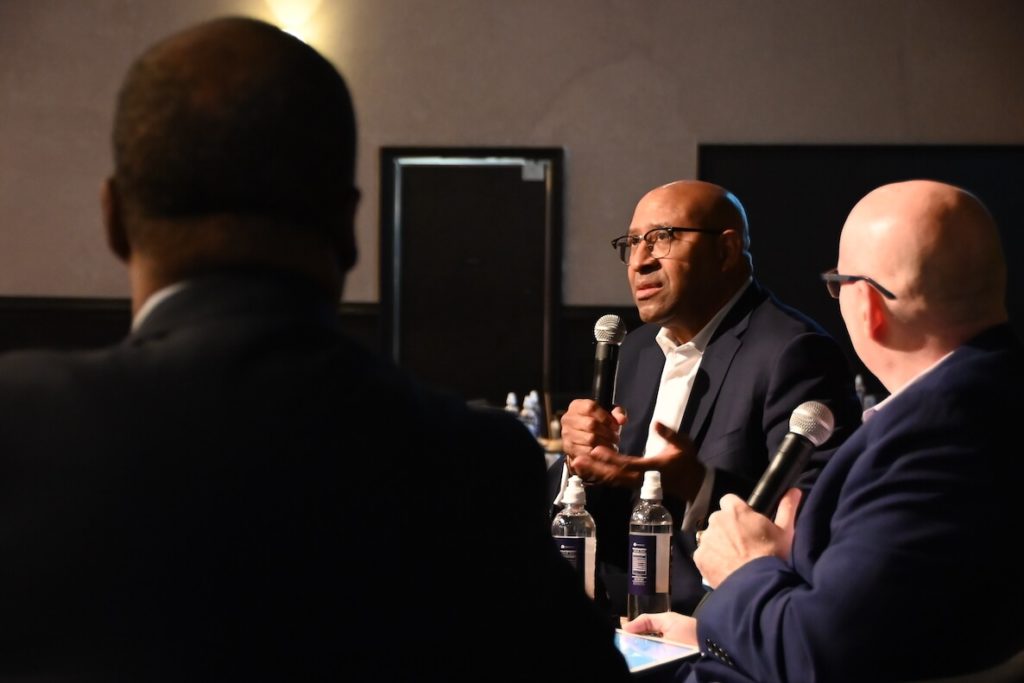
That’s a mayor striking at the emotional heart of a searing issue, something we’ve seen far too little of recently. And then he shifted into game-plan mode: “I had a district attorney, Seth [Williams], who we could work with, and talk to,” he said. “Obviously, he had his other issues and challenges, but as DA, Seth Williams did a better job than the person who is in the job right now because he understood the importance of public safety. That partnership—of our administration, Commissioner Ramsey, the DA, the courts, the federal agencies, the A.G.’s office, the governor’s office, and citizens who said we are not gonna tolerate this shit going on in our neighborhoods—that’s why crime went down in Philadelphia.”
Kasim Reed, the charismatic two-term mayor of Atlanta who hired more than 900 cops during his tenure and lowered crime by nearly 40 percent while growing his city into an economic juggernaut, argued that those two things—safety and prosperity—go hand in hand. “When Mayor Nutter cut crime, you see a thriving economy run right on the tails of that because people believe in their hearts, the city is mine, too,” he said. “And murder and violence make you believe less and less that the city is yours. And fundamentally we’re at our best when everybody believes the city is ours.”
It was a great applause line that makes one wonder: Have we heard anything from our leaders that makes us want to applaud? Hell, they won’t even talk to one another. Kenney and Krasner snipe and snub, while the body bags pile up.
Heeding the call… elsewhere
Within days, other leaders in other cities seemed to heed Nutter’s and Reed’s call. San Francisco Mayor London Breed did a major about-face, pledging to end “the reign of criminals who are destroying our city” and to be “less tolerant of bullshit.” A leader with impeccable progressive, defund-the-police credentials, Breed declared a state of emergency in her city’s Tenderloin District, ground zero of a devastating opioid epidemic.
Chesa Boudin, San Francisco’s Krasner-like progressive DA, condemned her, but Breed was doing what leaders do, changing positions out of a sense of duty when facts on the ground dictate: “I’m proud that this city believes in giving people second chances,” she said in a statement. “Nevertheless, we also need there to be accountability when someone does break the law. We can’t be a place where anything goes on the street.”
Also last week, saying that Chicago, where murder is up 5 percent over last year, “cannot continue to endure the level of violence that we are now experiencing—I feel the urgency every day,” Mayor Lori Lightfoot called for help from federal prosecutors and urged judges to immediately stop releasing defendants with ankle bracelets following their arrests for crimes like murder and kidnapping, calling the electronic monitoring system “fundamentally broken.”
Would Jim Kenney follow suit? I tuned into his gun violence press conference to find out, and, when it was over, I felt like I’d caught his depression. At one point, Manny Smith of CBS3 practically begged the mayor for some uplifting words—“I’m a city resident, too, and I think people are legitimately fearful, what’s your year-end message? Are things getting better, are we trying new things?”—and the Mayor went on a rambling reply bemoaning the return of Covid.
But here’s the thing: I’m tired of my own voice when it comes to Jim Kenney. He’s not a bad guy; he’s just the wrong guy for a city caught up in crisis. But what’s arguably more disturbing than his lack of action and leadership is the dearth of strategy proffered by his critics.
Where are the tried and true law enforcement solutions?
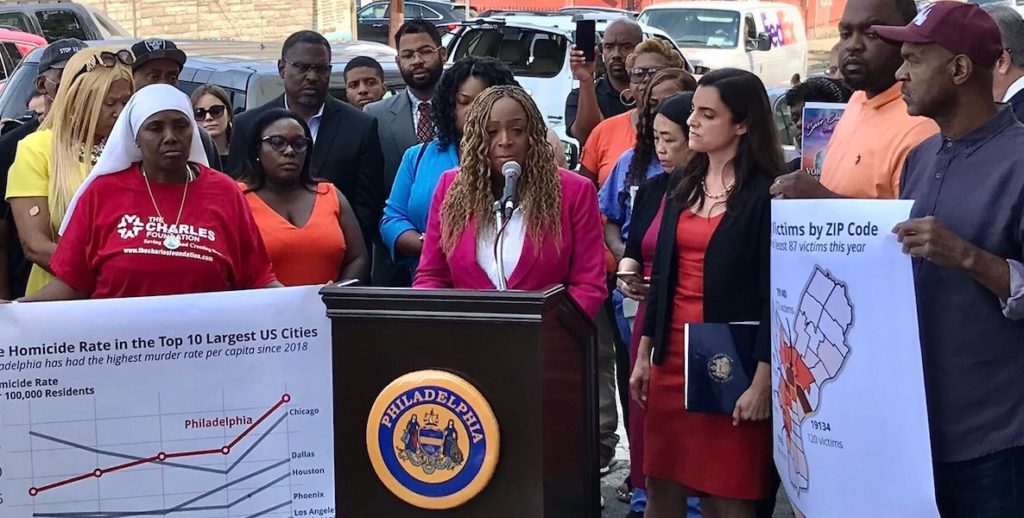
To wit: Also last week, Councilmember Jamie Gauthier and Controller Rebecca Rhynhart released a statement once again hitting the mayor upside the head for his disengagement on gun violence, but their message ironically contained a Kenney-like lack of substance.
“We want to be clear: we are wholly disappointed in the mayor’s inaction,” they wrote, referencing Kenney’s non-responsiveness to the list of “demands” they made of his administration back in July. Problem is, as I wrote then, their prescriptions include nary a mention of better policing and prosecution— despite the fact that criminologists agree that, if you want to turn around lawlessness, policing and prosecution are by far the quickest routes to that end.
Yes, there’s a lot of long-term policy prescriptions put forth by Gauthier and Rhynhart—$5.6 million in workforce development programs; increasing programming at rec centers, and some meaningless double talk (“the Managing Director’s Office of Community Services shall lead efforts to mobilize a community response by engaging individuals and additional non-profit and for-profit partners”).
In Atlanta, Reed once said about those who break the social contract: “They know I don’t play.” The progressives might write that off as tough guy posturing, but sometimes a message has to be sent that there are consequences for infringing on the rights of the average citizen.
But, while there is reference to targeted interventions in the 14 predominantly Black and Brown zip codes that are murder hotspots, we hear precious little from Gauthier and Rhynhart about tried and true law enforcement solutions. Gauthier likes to say you can’t arrest your way out of this problem, but when you have a police force with one of the worst clearance rates in the country, and a district attorney’s office that prosecutes far fewer gun crimes while the cops are making more gun arrests than ever, you can’t deny that a big part of the problem is a splintered law enforcement effort that is failing the city.
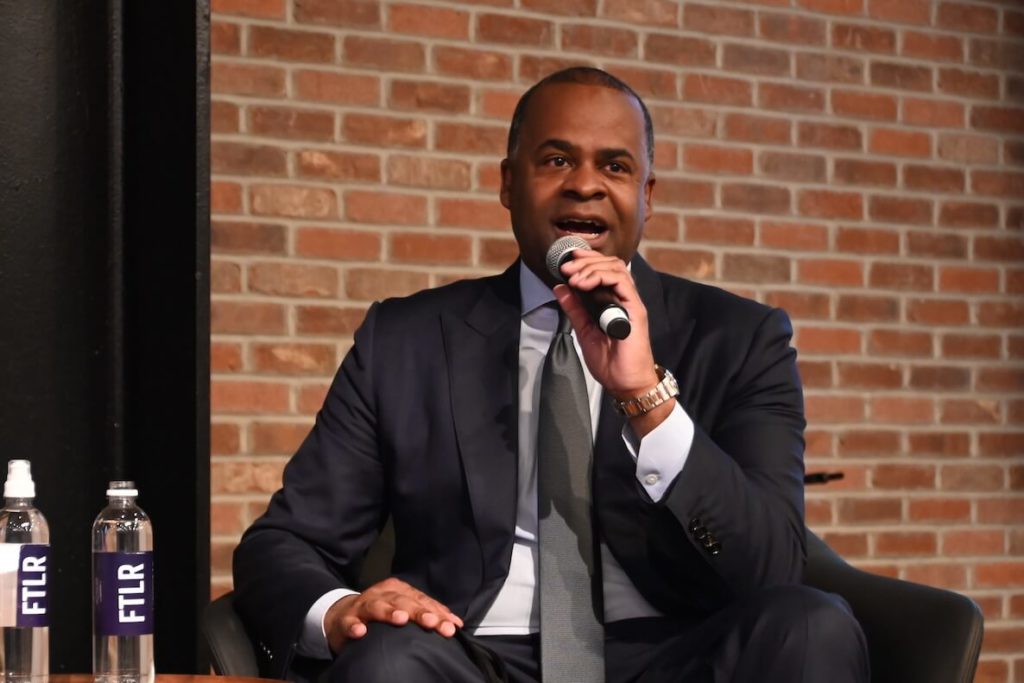
All this talk of feeding community groups more and more dollars from the public trough—a record $155 million, with hardly a mention of the metrics used to gauge success—is noticeable for its lack of political risk. You’ve heard me say it before: Political courage is about standing up to your friends. In stark contrast to the likes of Breed and Lightfoot (and Nutter and Reed when they served), Gauthier and Rhynhart appear to be afraid of their base, hesitant to offend the woke Twitterati by saying what is self-evident: That innovative policing has to be the prime solution in the short term, lest we descend into anarchy.
Despite the flaws in Gauthier and Rhynhart’s critique, their outspokenness appears to have had an effect, as the city released a report this week, imaginatively titled “Addressing Philadelphia’s Gun Violence Crisis: Our Approach.” It’s more of the same; unlike in San Francisco and Chicago, where leaders have admitted that what they were doing wasn’t up to par, the Kenney administration—like the district attorney—appears to be in denial. In other cities, gun violence surges coincide with the pandemic. Here, however, our murder spree tracks directly with Kenney’s and Krasner’s time in office, respectively, climbing more than 100 percent since 2016.
The case for gun violence intervention
Kenney’s report this week ignores this long-term trend, conveniently comparing only this year’s data to last year’s. (A comparison that nonetheless speaks to a crisis not adequately addressed). Far from a rousing call to arms infused with new thinking, the report runs down the strategies and programs the city has undertaken.
Some—like GVI, short for gun violence intervention—have stellar national reputations. GVI is kicking ass in other places; its initial incarnation, focused deterrence, is credited with cutting Boston’s murder rate by 80 percent, and a pilot program here under Nutter cut the gun violence rate by 35 percent in South Philly before Kenney discontinued it. But here its implementation appears to be half-assed, a de facto pilot program. Why are we still testing out programs when they’ve already been proven to work citywide in other cities?
GVI is the brainchild of legendary criminologist David Kennedy. Evidence shows that a small percentage of people drive a vast majority of gun violence, Kennedy holds, and violence can best be reduced by focusing directly on them through a carrot-and-stick approach, best exemplified by this message from Delco District Attorney Jack Stollsteimer, who, along with the cops, has used GVI to significantly cut crime in Chester: “We told them, ‘We know who you run with. We know your groups. You can’t have group shootouts anymore. We will help you if you ask us, but we will stop you if you make us.’”
I’m tired of my own voice when it comes to Jim Kenney. He’s not a bad guy; he’s just the wrong guy for a city caught up in crisis. But what’s arguably more disturbing than his lack of action and leadership is the dearth of strategy proffered by his critics.
So what’s the difference between the implementation of GVI in Chester as compared to Philly? First, in Chester, all stakeholders—the mayor, the commissioner, legislators, prosecutors, public defenders—are not only invited to the problem-solving table, they’re committed to working together. Moreover, in Chester—admittedly, a much smaller city—GVI has been implemented professionally. Here, the program is effectively run by a volunteer who had been working pro bono and who is now getting all of $5,000 a month to do one of the city’s most important jobs.
This is not a criticism of said point person Bryan Lentz, a former prosecutor and state rep who was integral to that stunning 35 percent shooting decline nearly a decade ago in South Philly, thanks to focused deterrence policing.
Again demonstrating just how much our stakeholders exist on different planets, Krasner has criticized Lentz and GVI for being too punitive. (God forbid we should tell shooters who are holding our city hostage that, if they don’t let us help them clean up their act, they’ll face consequences.) But the real issue is this: GVI is a complex strategy. Not only do we essentially have a volunteer running it—someone who is more than capable of being the official director, at a professional salary—we also only have four caseworkers for a city with 1.6 million people in it.
Oakland, a city one-third the size of Philadelphia, has 14 full-time caseworkers working with the most at-risk population on the frontlines of the gun epidemic—and has had incredible success with reducing gun violence as a result. What does such an underinvestment in the management of GVI say about the administration’s commitment to really move the needle on gun violence right away, at a time when we happen to be investing record sums in anti-gun violence programming?
Where’s Gauthier and Rhynhart on that? Or would hyping interventional policing techniques run afoul of the base? The politically courageous act would be to advocate for investment in what works right now.
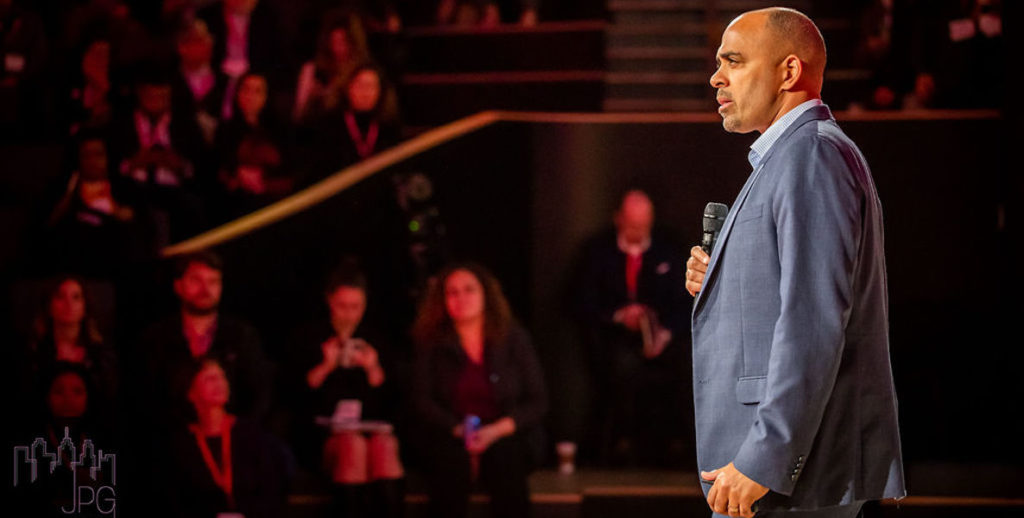
That was the message we heard from David Muhammad, executive director of the National Institute for Criminal Justice Reform, who spoke at our 2019 Ideas We Should Steal Festival. Muhammad’s CeaseFire program cut the homicide rate in half in Oakland, CA, and he consults for other cities who are seeking similar results. He said that most cities that seek to confront gun violence throw boatloads of dollars at all sorts of problems, instead of honing in on the proven techniques that can stop the violence in the short term:
The problem is many, many things fall under the broad category of violence prevention. I’ve heard everything from planting trees to universal pre-k to lead paint abatement. All of those have some research that says they result in gun violence prevention in 10, 15, 20, or 25 years…100 percent of the cities I work with do not get this at first: Your actions must be aligned with your desired outcomes. But I tell you what I get. City Council member X says we’ve gotta reduce homicides in the next year, so we’re going to launch a mentoring program for middle school students. A mentoring program for middle school students is great. We need it. It will never get you gun violence reduction in 12 months.
To their credit, Gauthier and Rhynhart have called on Kenney to declare a state of emergency in the hot spots of high crime—just as Mayor Breed just did in the Tenderloin. Congressman Dwight Evans co-signed the call for a state of emergency, something Kenney has stubbornly refused, pointing out, rightly, that such a declaration wouldn’t open up any new funding streams.
But it could allow the mayor to institute a curfew in the city’s most troubled hotspots and—most importantly—it would send a signal. Disorder is viral, and right now it’s spreading. In Atlanta, Reed once said about those who break the social contract: “They know I don’t play.” The progressives might write that off as tough guy posturing, but sometimes a message has to be sent that there are consequences for infringing on the rights of the average citizen.
The suspicion is that none other than Commissioner Outlaw agrees. When she was first hired, then managing director Brian Abernathy and Kenney chief of staff Jim Engler accompanied her to meet and greet members of Council. In that meeting, two people in the room told me, Councilmember Katherine Gilmore Richardson asked whether it might be smart to institute a curfew in the 11 zip codes where most of our murders were occurring. “She [Outlaw] said that ought to be something we should look at, at which point Abernathy or Engler, I can’t remember which one, said, ‘We’re not doing that,’” recounted a source.
A number of Councilmembers took note of the exchange. Was Outlaw—whose crime fighting plan contains many state-of-the-art strategies—being muzzled or micro-managed?
The Broken Windows Theory?
Perhaps the most frustrating thing about our status as one of the nation’s preeminent shooting galleries is that we actually know what works to stem the tide of gun violence—and it would be good if leaders like Rhynhart and Gauthier put those strategies front and center before the public. In the ‘90s and early aughts, we saw the nation’s greatest drop in crime in recent history thanks to versions of the Broken Windows Theory first popularized in New York under mayors Rudy Guiliani (when he was sane) and Mike Bloomberg.
Oh, no, he didn’t. Isn’t Broken Windows discredited? Racist, even? Hells no. Broken Windows often gets lumped in with Stop, Question and Frisk policing tactics—which, while constitutional, in practice have raised serious concerns of racial profiling. Broken Windows, on the other hand, is a theory of policing that mitigates against the virus of disorder, something much needed in a city where shoplifters are effectively playing The Price Is Right in retail outlets every day, knowing that, so long as they don’t exceed $500 in stolen goods from a CVS, our district attorney is unlikely to charge them with theft.
Broken Windows grew out of an Atlantic magazine article written in the 1980s by Harvard’s James Q. Wilson and George Kelling, a criminal justice professor at Rutgers University. At a time when policing was mostly reactive, they argued that small things matter in communities, and that when nothing is done about the small things, they grow to become big things.
Broken Windows, on the other hand, is a theory of policing that mitigates against the virus of disorder, something much needed in a city where shoplifters are effectively playing The Price Is Right in retail outlets every day.
“We expressed this in a metaphor,” explained Kelling a few years ago in Politico, prior to his passing. “Just as a broken window left untended in a building is a sign that nobody cares, leading typically to more broken windows—more damage—so disorderly conditions and behaviors left untended in a community are signs that nobody cares and lead to fear of crime, more serious crime, and urban decay.”
They came to this conclusion by actually listening to those in poor, mostly minority communities who were most proximate to the problem. Even in neighborhoods with high murder rates, residents would list comparatively minor transgressions like graffiti, teens drinking beer in public parks, and subway turnstile jumping as their top concerns. Why? Because they’d seen the degree to which, once those conditions ran rampant, gun violence was not far behind.
Alas, once Michael Brown was killed by police after being stopped for jaywalking in Ferguson and Eric Garner was choked to death by New York police for selling loose cigarettes, Broken Windows fell out of favor. But those tragedies were not actual examples of Broken Windows policing, which was never intended to be about making arrests. (In fact, a 2013 study by the Brennan Center for Justice found that Broken Windows led to decarceration.)
“Broken-windows policing is a highly discretionary set of activities that seeks the least intrusive means of solving a problem—whether that problem is street prostitution, drug dealing in a park, graffiti, abandoned buildings, or actions such as public drunkenness,” wrote Kelling. “Moreover, depending on the problem, good broken windows policing seeks partners to address it: social workers, city code enforcers, business improvement district staff, teachers, medical personnel, clergy, and others. The goal is to reduce the level of disorder in public spaces so that citizens feel safe, are able to use them, and businesses thrive. Arrest of an offender is supposed to be a last resort—not the first.”
Studies have shown that Broken Windows policing reduces not only mass incarceration, but also crime. As such, it should be embraced by progressives, particularly in the 12 cities, like ours, currently experiencing record levels of disorder and lawlessness. Don’t let the Left tell you that the likes of Breed, Lightfoot, Nutter and Reed have suddenly gone all Bull Connor on us, or that Broken Windows represents fascist, abusive policing. There is a way out of this. Now we just need timid, finger-to-the-wind elected officials who are willing to heed the wisdom in the old Dylan song: You don’t need a weatherman to know which way the wind blows.
![]()
RELATED
Guest Commentary: The Economic Imperative To Stop Gun Violence



